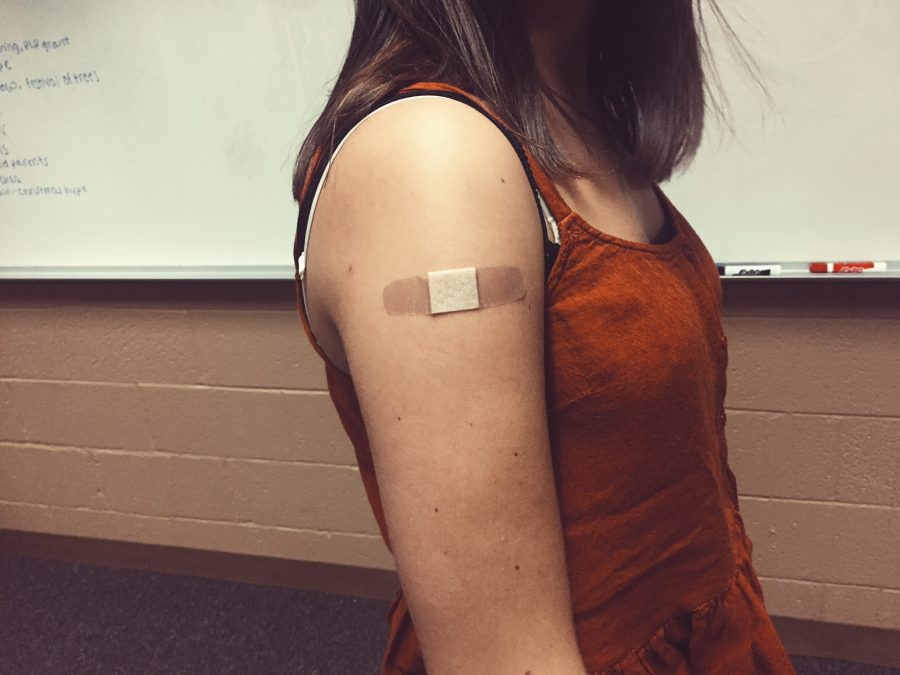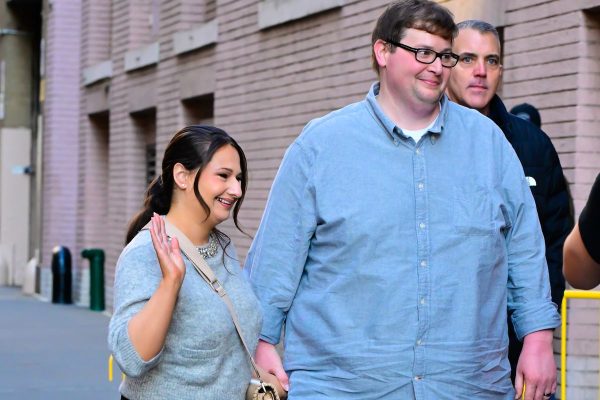Give Vaccinations a Shot
The controversy of vaccinations returns as winter arrives and flu season returns.
Arriving at the doctor’s office for a yearly checkup or athletic physical is always an anxiety ridden mystery. The possibility of having to undergo shots and vaccines can still terrify the average high school student, leaving him or her weary to return after such an experience. What many people may not know is that although getting vaccinations is not a desired activity, getting vaccinated is extremely important.
Vaccines are substances used to stimulate the production of antibodies and provide immunity against one or several diseases. Vaccines leave many people asking questions about how good they really are because a strain of a disease is introduced in order to build up the immune system and defeat the actual disease. The controversy developed due to extreme opinions on both sides of the issue.
Parents Against Mandatory Vaccines (PAMV) and other similar organizations have spoke out in opposition to vaccinations. These groups feel as though they are exposing the vaccination agenda. PAMV assures parents that children are better off without vaccines because immunizations are genetically engineered and lab altered. PAMV actually encourages other solutions to illnesses, such as chiropractic and essential oils. These so-called “alternatives” obviously should not be substituted for real, medical vaccinations due to their lack of scientific analysis.
“I do find chiropractic and essential oils beneficial; however, I do not think they are in any way a sufficient replacement for vaccines,” said junior Ashley Troutman.
A significant reason why people are against vaccinations is because of a study released in 1997 by Andrew Wakefield, a British surgeon, claiming that vaccinations cause autism. This study has been proven false by numerous researchers and investigations. Veritably, Wakefield, as well as members of the GMC tribunal, were charged with accounts of dishonesty and abuse of disabled children in 2010. Wakefield’s incorrect and inappropriate claim against vaccinations left many parents thinking they were purposefully giving their children autism. Even though Wakefield is not a credible source and his study has been disproven countless times, people are still on edge.
Another cause of the mass uncertainty and apprehension is the idea that vaccines carry unsafe toxins. While it is true that chemicals like aluminum, mercury, and formaldehyde are used in vaccines, they are only used in small amounts. In fact, higher quantities of formaldehyde are actually produced in human metabolic systems than are supplied in vaccines. Additionally, there is no scientific evidence that small amounts of mercury and aluminum can cause harm to people. Is this enough evidence to convince adults that vaccinations are the safest way to keep our youth healthy?
Many parents are more comfortable with the idea of “natural alternatives” to vaccinations in order to avoid figuring out whether vaccines are safe or not. An example of a natural substitute can include garlic, which is viewed as a safe remedy able to prevent the contraction of diseases.
“I understand the skepticism; however, organic foods will not protect your child from measles,” said senior Stella Kent.
Some people avoid vaccinations because of personal beliefs and religious freedom, they often use the first amendment to protect this choice of theirs. States across America allow vaccines exemptions for religious reasons. Christian Scientists, Catholics, and the Dutch Reform Church are examples of religious groups that can avoid vaccinations. Occasionally parents will exploit the religious exemption in order to avoid vaccinating their kids.
“As for the freedom of religion argument, neglecting to vaccinate your children leads to harm of your child and other children. The constitution outlines that the practice of religion is accepted until it brings harm upon the believers or people outside of the religion. Every kid should be vaccinated, because it not only endangers them, but if they do get sick from a preventable disease, it impedes on the education and health of other kids,” said Adams alum Jeremy Abreo, a nursing major at Grand Valley State University.
The best and safest option to protecting children from serious illnesses is vaccination. The ingredients used in vaccines are safe and vaccines are 90 to 99 percent effective in preventing diseases. Inoculations and vaccines are actually responsible for eradicating diseases like smallpox.
“Children absolutely need to be vaccinated because vaccines reduce the spread of disease in the world. By vaccinating your children, you are not only protecting them but also the rest of the world from sickness,” said senior Kennedy Iwas.










